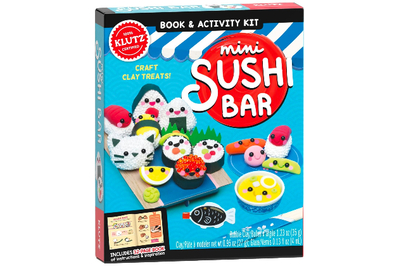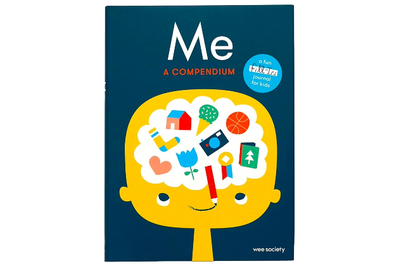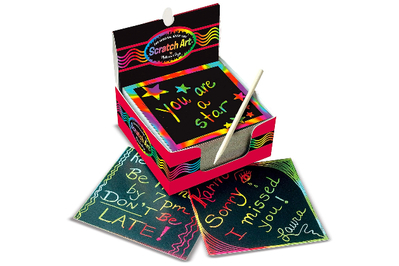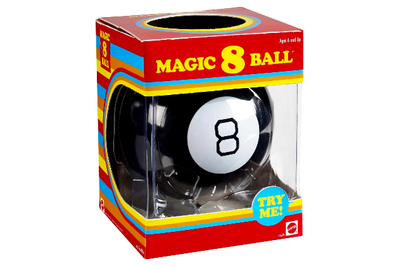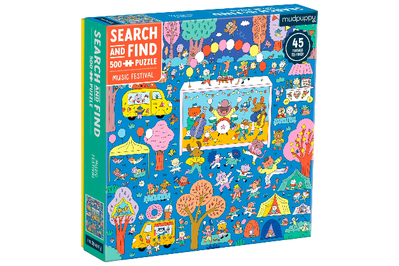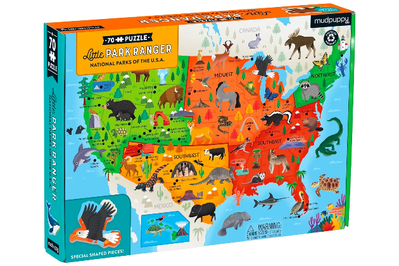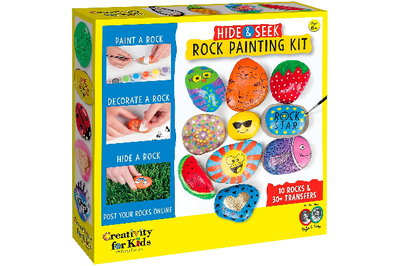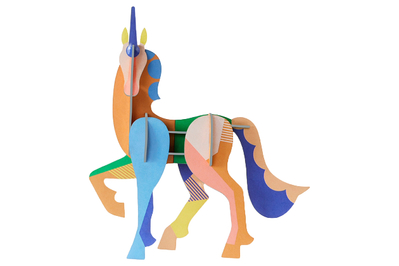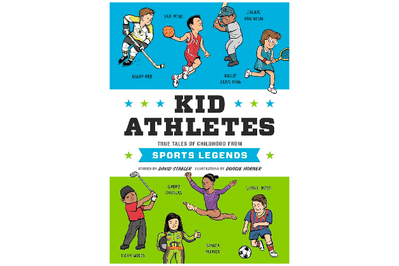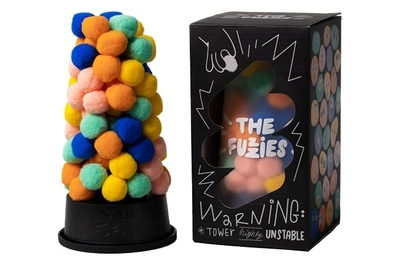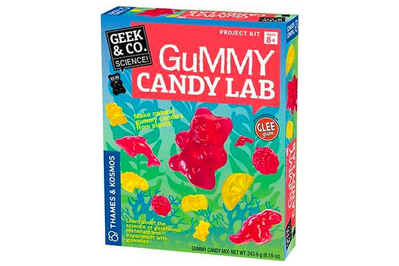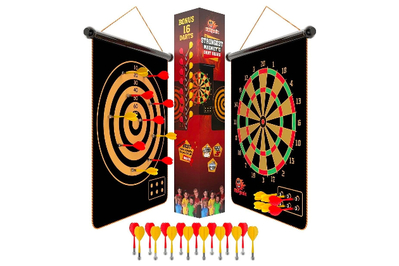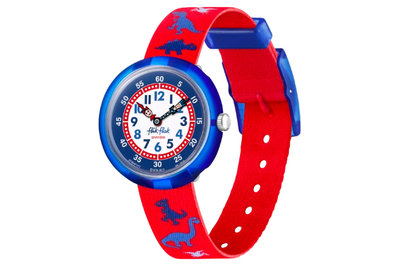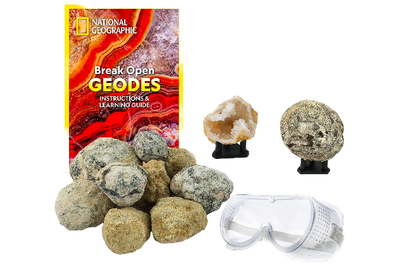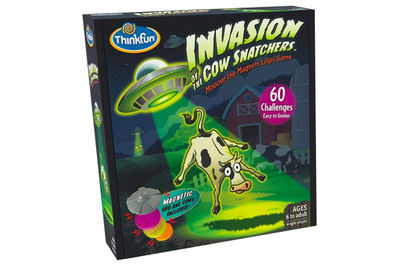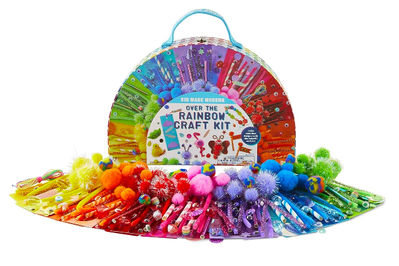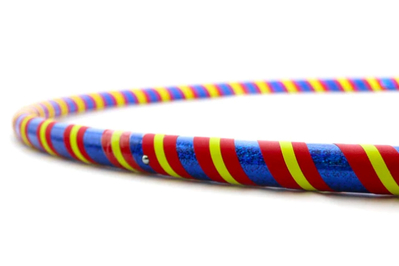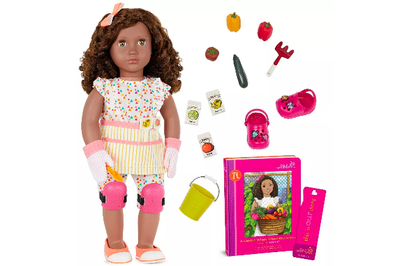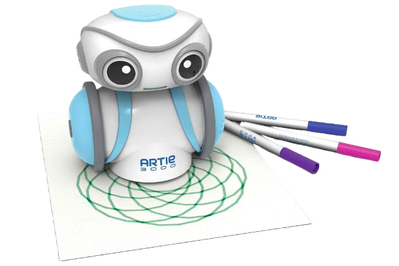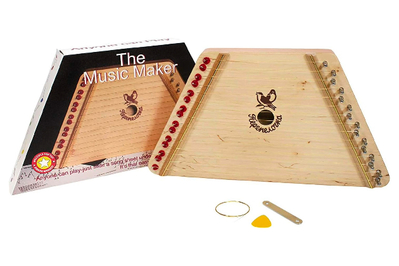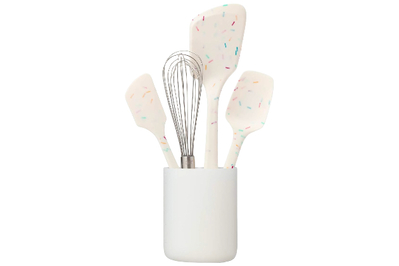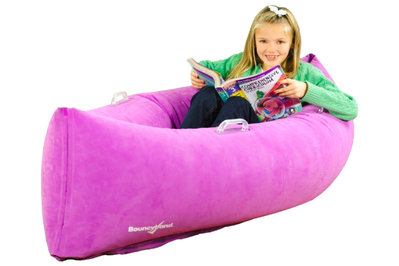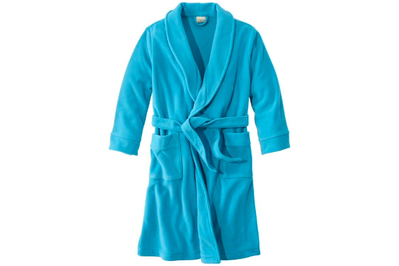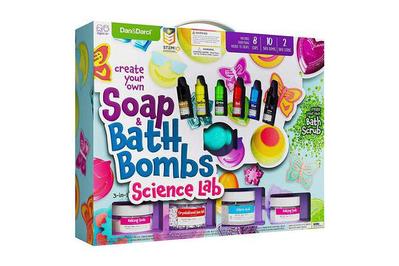
By Ellen Lee and Wirecutter Staff
As 7-year-olds transition from being little kids to grade-schoolers, they start showing off their ability to engage in complex thinking. Some may be ready for toys and games that require longer-term planning, strategizing, and decision-making, so it’s a great time to incorporate board games that encourage problem-solving, said Brian Mayer, a gaming, learning, and library specialist in New York.
Advertisement
SKIP ADVERTISEMENTSeven-year-olds are also developing more spatial awareness, so look for toys and kits that inspire them to think about how pieces fit together, like challenging puzzles, said Hilary Conklin, professor at DePaul University’s College of Education. Kids this age may also be ready for toys that introduce them to the basics of coding, especially those that help them explore fundamental programming concepts in a tangible way, as well as one-and-done craft or project kits, which can be launching pads to new hobbies and interests.
We relied on the advice of experts, as well as the collective experience of parents and caregivers on our staff, to identify memorable gifts for 7-year-olds. We also offer more gift ideas for kids here.
A 3D brain puzzler

This 3D puzzle challenges kids to fit all 10 shapes into the grid in multiple configurations.
Buying Options
Think of Kanoodle Gravity as a tactile, three-dimensional game of Tetris. Ten colorful pieces in an assortment of shapes must fit into a grid. Although you can take turns with a friend, my daughter relished the challenge of working her way through a booklet of 40 increasingly difficult puzzles on her own. Lightweight and compact, this game is also easy to pack for travel. Kanoodle Gravity (which was previously named a top engineering toy by Inspire, a research institute in the School of Engineering Education at Purdue University) is part of a series of Kanoodle brain teasers that also includes Kanoodle, Kanoodle Extreme, and Kanoodle Genius.
Roll with it

This craft kit includes all the air-dry clay, tools, and decorations to make a bento box’s worth of tiny, adorable sushi, sashimi, and more.
Buying Options
There’s something innately delightful about molding tiny foods out of clay. The Klutz Mini Sushi Bar Activity Kit comes with all the materials you need for a few hours of fun: different colors of air-dry clay (for the main ingredients and sushi rice), decorative beads and bobs (for finishing touches like salmon roe and eyeballs), and a double-sided plastic tool (for cutting and shaping). When the creations are complete, they can be displayed using the included chopsticks, a small bowl, and a cardboard bento box. (For those who aren’t familiar with Japanese fare, there’s also information provided on the various dishes.)
My daughters, ages 8 and 6 at the time, ended up making a bento box filled with onigiri (rice balls), mochi balls, and an impossibly tiny portion of miso soup. The straightforward instructions—written for around a third-grade reading level—have step-by-step illustrations, with helpful visuals demonstrating the exact amount of clay to pinch off for each project. My daughters needed a hand with a few of the tasks that required more dexterity, like carefully gluing the edges of the cardboard milk container together. Once the projects had air-dried overnight, the kids treated their American Girl dolls to lunch.
Advertisement
SKIP ADVERTISEMENTA first diary

This colorful journal is full of open-ended questions, illustrations, and drawing prompts to get a kid’s creative juices flowing.
Each page of Me: A Compendium encourages a young journaler to share what they’re thinking by drawing and writing details based on prompts accompanied by lively illustrations: “These are the things in my brain,” “This is what my hair looks like,” “If I had a robot, I’d program it to ... .” We started out doing a page a night, and my son had a ball filling in his thoughts and making the book all about, well, him. Similarly, Me: A Kid’s Diary is a digital journaling app that lets kids map out their feelings, experiences, passions, and personal connections using different media and modes of expression (we recommend it in our guide to our favorite learning apps). In some ways, the experience is akin to using social media (kids upload photos, make videos, write reflections, and map their families and personal connections), but in an entirely closed, safe environment. There’s no actual communication or sharing within the app.
Rainbow message

Kids can scratch a rainbow-hued message or drawing on these small sheets of black paper.
Buying Options
I’m big on leaving surprise affirmations in my kids’ lunch boxes. I used to write them on Post-it notes but recently discovered something better: Scratch Art Rainbow Mini Notes, a pack of 125 blank cards and a wooden stylus. I like the added creative umph of offering them loving words in rainbow letters with a black matte background. And since my littles have foundational writing skills, they can leave me notes, too. This pack of blank note cards offers so many possibilities: Kids can have fun writing notes to their friends, loved ones, or even to themselves on this paper. They also have potentially practical uses, like reminders, contact info, and brief memos. I may or may not have even used them to write a few words of encouragement to myself.
Advertisement
SKIP ADVERTISEMENTOutlook good
Ask this fortune-telling ball a yes-or-no question and see what your future has in store.
Buying Options
When my kids pepper me with questions, I’m grateful for this throwback fortune-telling toy. Turn it upside down, and the Magic 8 Ball, which has been around since 1946, prognosticates with one of 20 possible outcomes: “Without a doubt,” “Cannot predict now,” “My reply is no.” Both of my kids enjoy holding the powerful orb and predicting the future. Will my son’s favorite football team make it to the playoffs? Will my daughter’s teacher choose her to be the class superstar tomorrow? I don’t have all the answers, but the Magic 8 Ball can at least help with some of them.
Out-of-the-box animal puzzles

Once this more-challenging puzzle is assembled, you can also hunt down 45 hidden objects in its dynamic music festival scene.
This eye-catching 70-piece puzzle can prompt conversation about geography, animals, and, maybe, future family travels.
Doing a puzzle made by Mudpuppy is a deeply satisfying experience. The colors are vibrant, the designs are stimulating and beautiful, and the pieces are thick and sturdy, with chunky, clean edges that fit together just as they should. My kids and I enjoyed two animal-themed puzzles, each with its own special twist. The Little Park Ranger National Parks Map of the U.S.A. highlights national parks like Yosemite and Acadia; 18 of those pieces are in the shapes of critters that live in the parks, including an armadillo, a pelican, and a buffalo. The Music Festival 500 Piece Search & Find Family Puzzle, meanwhile, serves as an activity twofer. First, you put together the 500 pieces—this will likely be a family affair, given the size—to reveal a bunch of cartoon beasts (innocently) rocking out at a music festival. Then, for the encore, you try to find 45 items embedded in the scene, à la Where’s Waldo?
Advertisement
SKIP ADVERTISEMENTA puzzle with pizzazz

This cardboard puzzle turns into an aesthetic, colorful figurine.
Buying Options
Keewa Nurullah, owner of the children’s shop Kido Chicago, discovered Studio Roof, the Dutch design company behind this 3D unicorn puzzle (and other pieces like decorative masks) on Instagram. “They have very bright, vibrant, impeccably designed items,” said Nurullah. What stood out most about the unicorn puzzle? Its 3D element. “As opposed to a flat puzzle,” explained Nurullah, “it really gets kids’ brains thinking about engineering and STEM in terms of how the pieces fit together.” The recycled-cardboard pieces stand about a foot tall when assembled. Once the puzzle has evolved from a set of 13 flat pieces into a colorful unicorn, it can be a prop for play in a fantastical imaginary world. There are other styles, too, including a stegosaurus and a catamaran.
Advertisement
SKIP ADVERTISEMENTA cute crystal pet

This simple science project produces an adorable spiky hedgehog.
Buying Options
The Crystal Growing Hedgehog takes a popular science experiment and includes a dose of cuteness. Add boiling water—adult help will be needed—and the included packet of powder to a container, place the hedgehog figurine inside, and the next day you should have an animal covered in colorful crystals. Part of the fun is the anticipation—we checked on our little guy at regular intervals to see if the crystals had grown. While our hedgehog’s spine was not quite as dramatic and spiky as the image on the package, its quills did indeed grow and cover its back.
Origin stories
From Gabby Douglas to Lionel Messie, readers learn about the early lives of historical and contemporary pro athletes through 16 inspiring stories.
Buying Options
I can’t count the number of times my son and I have read about NBA legend Yao Ming’s challenging upbringing as one of the tallest kids in China, or NFL star Peyton Manning’s teenage brush with ballroom dancing. Written by David Stabler and illustrated by Doogie Horner, Kid Athletes: True Tales of Childhood from Sports Legends shares stories from the early lives of 16 pro athletes, past and present, such as baseball trailblazer Jackie Robinson, tennis great Billie Jean King, and Olympic gymnast Gabby Douglas. My sports-fanatic son has devoured quirky tidbits about each of their childhoods. Resilience is a major theme, such as the time when Hawaiian sumo wrestler Jesse Kuhaulua (now known as Takamiyama Daigoro) was hit by a pineapple truck in the second grade. Both his legs were broken, and he had to spend six months in the hospital, but he recovered and prevailed. That relatable, “Wow! Famous folks were kids too once!” message can also be found in seven other books in the Kid Legends series, including Kid Presidents, Kid Authors, and Kid Innovators.
Advertisement
SKIP ADVERTISEMENTA different kind of stacking game

This colorful stacking game uses small fuzzy balls that stick together.
Buying Options
The Fuzzies is like the stacking game Jenga, but cuter, softer, and more colorful. One of our favorite family board games, it calls on players to pluck and stack small static-clingy balls without knocking down the tower. Bonus: It’s easy to set up and store. Toss the balls in the included cup and press down with the base of the tower. To start a new game, just remove the cup.
A durable fort-building kit

This fort-building set comes with three blankets, weights, Velcro, and straps to build indoor or outdoor hideaways.
Buying Options
My mom never complained when she had to pick up and put away almost all of the blankets in the house after my sisters and I made a fort in the dining room. It was only once my own children started building forts in our living room that I understood how annoying this task can be. But who am I to take away that rite of passage? Tote-A-Fort is my solution. It comes with three durable blankets in different colors (yellow, blue, and red; the “princess” set comes with four blankets in pink, yellow, orange and blue), with Velcro and straps that attach the blankets together and to the furniture. Anchor weights keep them from sinking down, and a cinch sack stores it all. A 5-year-old kid, a 15-pound dog, and I all fit comfortably under the finished product, and the colorful material reminds me of the parachute game from physical education class in elementary school.
Advertisement
SKIP ADVERTISEMENTDIY candy

This candy-making set can create gummy bears in two sweet flavors.
Thames & Kosmos is known for making fun science kits that also explain the science behind the experiment. The Gummy Candy Lab (with variations for making gummy worms and gummy unicorns) comes with all the ingredients and molds you need to concoct your own fruit-flavored, multicolored gummy bears, and the instructions walk you through the chemistry of candy-making. Kids will likely need adult assistance, especially for the experiments that require the microwave and stove.
Target practice
In this safer version of the classic game, the 16 magnetic darts stick to a two-sided felt board.
Buying Options
Flying objects pose a real risk in our home. Stuffies, balls, shoes—my kids love tossing anything they can get their hands on. The Fungenix Magnetic Dart Board has helped contain their target practice. The 18-by-15-inch felt board is attached to a string loop, and it’s portable and light enough that you can hang it from a small nail, tack, hook, or doorknob without making a permanent decor commitment. (Keep in mind that the darts are magnetic and therefore have some heft to them, so you might not want to pick a spot close to any windows.) When it’s not in use, the board rolls up and stores easily. And it’s reversible, with a different target on each side—one with numbered rings and segments, like a traditional dart board, and the other with concentric circles. The 16 magnetic darts are short and snub-nosed; they attract to the board surprisingly well, without being too heavy to hold or throw, and they have yet to make any dents in our walls.
Advertisement
SKIP ADVERTISEMENTA classic Swatch

These retro kids watches continue to delight—and to teach time telling—with an array of vibrant colors and playful designs.
Buying Options
When my kindergartener told me she wanted her first watch, I was skeptical she’d be ready to use it as anything but a cute accessory. But I did my research (a Wirecutter editor’s specialty) and realized the Swatch Flik Flak we’ve been recommending for years is still the best first watch for kids. Yes, they’re analog, and yes, my 5-year-old’s concept of time was more surrealist than realist, but the watch feels solid and of the high quality you’d expect from a Swiss-made wrist watch. The watchmaker also came up with an ingenious idea nearly 40 years ago to help kids learn to tell time: on some models, the characters of brother and sister “Flik” and “Flak” are the minute and hour hands. Flik, for example, who is taller, moves faster around the clock face, while Flak points to each clearly written hour number. And the best part: within a couple of days my husband and I could ask our daughter what time it was, and she was right 90 percent of the time.
A grab bag of geodes

Smashing regular-looking rocks reveals wondrous, sparkly geodes in this hands-on science kit.
Even for a kid who has everything, this box of geodes makes an impressive gift. On the outside, these break-open geodes look like boring round rocks. But after you smash them with a hammer (or, for better results, cut them with a tile saw, if you have one), their sparkly, gem-hued, crystal insides are revealed. The open geodes look impressively like pirate-chest treasure, as my son referred to his collection. After taking stock of the treasure, your child can read about geodes in an included booklet, learning how they form and how to identify the different colors and types of crystals inside. And let’s be honest: For many kids (mine included), getting to smash and bash things with a hammer is a gift in and of itself. Safety goggles are included.
Advertisement
SKIP ADVERTISEMENTCows in space

This zany single-player logic game features 60 increasingly difficult challenges.
In this solo puzzle game, the player is a UFO beaming up cows. A clear piece of plastic separates the spaceship from the pasture, where five cows (represented by red, blue, orange, pink, and yellow coins) are grazing—until they’re zapped up with a satisfying magnetic clink, that is. The game comes with 60 cards that show you how to set up the pasture and where to place the cows, and the puzzles become increasingly difficult as you advance. STEM education expert Elizabeth Gajdzik included Invasion of the Cow Snatchers on a Purdue University list of the best engineering toys for kids, after student testers named it a favorite. Gajdzik also liked that it exercises kids’ spatial reasoning skills.
A totable hub for creativity

This well-organized box is chock-full of colorful pom-poms, pipe cleaners, string, and more.
Googly eyes, pom-poms, beads, glitter, paper tubes, pipe cleaners in a range of colors—the Kid Made Modern Rainbow Craft Kit is a portable craft studio housed in a case made for carrying. “That’s the beauty of the box,” said Debbie Imperatore, manager of and buyer at Funky Monkey Toys. “Put it in front of any kid and they can use their imagination to turn a piece of construction paper into a three-dimensional item.” The box is reusable, and the more than 300 pieces inside are organized by item type and color group. (If you need a larger craft stash, we recommend a 1,000-piece kit, also by Kid Made Modern, in our guide to gifts for 8-year-olds.) “It’s so happy-looking that when you put it on the table and kids open it up, they’re wowed,” said Imperatore. (When she gave it to a neighbor, the girl’s mom reported that her daughter was speechless.)
Advertisement
SKIP ADVERTISEMENTA monthly highlight

This kids magazine is a fun monthly read, full of puzzles, stories, recipes, and art projects.
Buying Options
My kids look forward to the latest issue of Highlights, the same children’s magazine that I read as a kid. Highlights still includes classics like Goofus and Gallant, the two polar-opposite boys who are always doing something naughty yet good. But the 78-year-old magazine has also been updated with a modern and diverse cast of characters. Every month, its 40 pages are packed with puzzles, games, short stories, recipes, art projects, and an advice column. Our house now has stacks of Highlights, because my kids refuse to let go of the back issues, and they reread them regularly.
A hardy hoop

This weighted hula hoop stands out in a field of flimsy competitors—and is easier to keep spinning and use to perform tricks.
Buying Options
My husband and I were amused when our son gave a demonstration of his recently acquired hooping skills as a part of his third-grade parent-teacher conference. After seeing our kid’s enthusiasm, we set out to find a quality Hula-Hoop for him to practice with at home. We called on the expertise of an old friend, Amy Goldstein, who directed the 2014 documentary The Hooping Life, which explores the subculture of serious hoopers. The durable polyethylene hoop Goldstein recommended (from Oregon-based Canyon Hoops) is a splurge. But I know that thinner, flimsier hoops tend to kink out of service within months. And I liked the idea of getting a quality tool to help our not-into-sports kid perhaps excel at an unexpected new pastime. The versions made by Canyon Hoops come in lots of fun, striped designs, as well as in different weights, for beginners or more-advanced hoopers interested in performing all-body tricks. The 32-inch version is a good choice for kids between about 6 and 13, according to the company.
Advertisement
SKIP ADVERTISEMENTA new friend

These 18-inch dolls have a wide array of skin tones, hair types, interests, and outfits.
Buying Options
When it comes to toys, a doll is as classic as they come. Those by Our Generation are among our favorites. They’re lifelike and offer an alternative to the ever-popular—though much more expensive—American Girl dolls. (We recommend those in our guide to gifts for 8-year-olds.) Each of the Our Generation dolls comes with different outfit options and a few accessories (they can change often), and those in the Deluxe line include a chapter book that tells a short story in which the doll is a character. These dolls have a diverse range of skin tones, backstories, and brushable hairstyles, offering plenty of options for your child to find a match.
Creative coding

Kids can program this cute robot to draw all sorts of shapes and designs onto paper.
Robots and other physical toys and games offer a whimsical and tactile way for kids to learn basic principles of coding. Artie 3000 is an adorable robot that can hold a marker to draw different shapes and designs—like a square—on a piece of paper. The robot pairs with an app or website that kids use to program Artie to create their works of art, advancing from simple, visual drag-and-drop instructions to coding in Python, a popular programming language. Once kids get the hang of it, they can let their imaginations run wild, said STEM education expert Elizabeth Gajdzik, who recommends Artie for kids ages 7 and older. Artie 3000 comes with four washable markers, but it can accommodate any skinny pen. (A downside is that Artie runs on AA batteries, instead of being rechargeable.)
Advertisement
SKIP ADVERTISEMENTA lap harp that will get play

This instrument produces lovely sound and comes with intuitive sheet music that makes it a breeze to learn 12 songs—no music-reading knowledge required.
Buying Options
Weary from hearing my child’s toy piano, plastic trumpet, and yoga block–turned–drum, I replaced them with the soothing Music Maker Lap Harp. The harp comes fully assembled with 12 different song sheets that slip under the strings and show kids where to pluck; each string corresponds with a printed note. Although this may sound complicated, the setup is surprisingly intuitive, and kids don’t need to know how to read music to play the harp (which I wish had been made clearer in the product description). The harp also arrives pre-tuned—not all do—and it comes with a pick and a replacement wire. In short order, my then-7-year-old was strumming the melody of a few familiar “baby songs” (“Baa Baa Black Sheep,” “Twinkle Twinkle Little Star”), and he soon built up enough confidence to work his way through a Bach minuet. Want to make it more of a shared activity? You can buy a second harp and a set of harmonic sheets for duets.
Kitchen tools of their very own

These kid-sized silicone kitchen tools are fully functional, with a rainbow sprinkle design that adds whimsical flair.
Buying Options
A budding baker or curious cook may love this cheery mini kitchen tools set, which includes slightly smaller versions of some GIR favorites: a spatula, a “spoonula,” a flipper, and a whisk, plus a little squishy measuring cup to hold it all together. (We also recommend the GIR Mini Spatula and GIR Mini Stainless Steel Whisk in our guide to the best tools for cooking with kids, and we highlight many of the company’s full-size workhorses in our guide to spatulas.) If your kid is starting to learn some independent tasks in the kitchen (making pancakes or eggs, whisking together a salad dressing), having their own tools can build their confidence and inspire ownership over the tasks. The sprinkles embedded in the silicone really up the fun factor, and GIR’s meticulous approach to design means utensils are comfortable to hold, a joy to use, and likely to last until your kids leave the nest. Fair warning: The adults in the household could grow attached to these, too!
Advertisement
SKIP ADVERTISEMENTA calming canoe

This inflatable canoe-shaped seat can help kids feel calm and secure.
Buying Options
Like all kids, my littles occasionally need support managing big feelings. I hold them tight through hard times, but my daughter also uses this canoe-shaped Hugging Peapod. She snuggles into its cushy walls during rough moments, which she says “feels like I’m getting a big, big, big hug from mom.” She can also hold two of its four plastic handles to settle in or rock side to side for an emotional reset—you can see the calm spread across her face. The Hugging Peapod, which comes in three sizes and two colors, is also a comfy place to watch TV or read a book. An included electric pump helps inflate it. And compared with other lightweight options, this sturdy seat is made of flocked vinyl with triple-welded seams, so I don’t have to worry about it popping.
At-home spa-day gear

This robe is snuggly, durable, and warm. Bonus: The attached belt will never go missing.
Buying Options
Make your own glittery bath bombs, soaps, and scrubs with this kit.
Package up a soft, fleecy bathrobe, a kit to make soap and bath bombs, and maybe some kid-friendly, water-based nail polish, and—voilà!—you’ve got something pretty close to a luxury spa day, first-grader style. Available in five colors (with a monogram option), the L.L.Bean Kids’ Fleece Robe is listed among our favorite pajamas for kids because of its excellent construction, cuddly fabric, and attached belt. The Dan&Darci Create Your Own Soap & Bath Bombs Science Lab lets kids concoct their own soap, fizzy bath bombs, and scrubs. It manages to make the process fun and educational, but it doesn’t create a giant mess (and it’s one of the picks in our guide to the best bath bombs). Piggy Paint nail polish is designed for kids, and it’s a longtime favorite of my daughters. Unlike other nail polishes they’ve had, Piggy Paint polishes stay on their nails (other kid-friendly nail polishes we’ve tried tend to peel off easily). And these polishes are either odorless or have fun, pleasant fruit scents, instead of a chemical smell. My daughters especially like the glow-in-the-dark “radioactive” polish (which really does glow).
Advertisement
SKIP ADVERTISEMENTTheir first watercraft

This kid-sized kayak is reasonably stable and easy for young paddlers to maneuver.
Buying Options
A few summers ago, my then-7-year-old son got this rugged, brightly colored, sit-on-top kayak as a gift from his grandmother. After just two or three warm-up sessions, he was able to effectively propel himself on a route that was a couple of miles long, which was a satisfying, confidence-building achievement. The boats seem popular on our local New England lakes, and my son’s older and younger cousins have enjoyed them as well. The kayak comes with a paddle, and it’s rated to 130 pounds (I checked, and even a little more than that is too heavy). Don’t forget an appropriately sized kid life jacket. I also picked up a simple, carabiner-equipped towline at the local hardware store, so I could give a tired kid a lift when needed.
This article was edited by Kalee Thompson.
Meet your guides
Ellen Lee is a senior staff writer covering baby and kid gear for Wirecutter. Her work has also appeared in The Atlantic, BBC, and Real Simple, and she was previously a staff writer for the San Francisco Chronicle. She is also the author of the (ADJECTIVE) Lunar New Year Mad Libs book. (We’re hoping you filled in the blank with “hilarious.”)
Wirecutter Staff
Mentioned above
- We spent 40-plus hours testing more than 50 recommendations from educators, experts, and parents to find the best educational apps and games for kids.Some of the Best Online Learning Games for Kids
- We spent 20 hours researching nearly 50 board games for kids. Read on to find out our favorite games for preschoolers, elementary-school kids, and families.Board Games We Love for Kids and Families
- For some children, a doll will be the most treasured toy they own. We tested 25 dolls to help you find one that feels just right for the kid in your life.The Best Dolls
- We’ve tested more than 45 pieces of kitchen gear to find those that are most worth investing in for younger cooks, whether they’re toddlers or teens.The Best Kids Cooking Tools (That You’ll Love Too)
- To find the best spatula for every scenario, we’ve tested spatulas of all types––from all-purpose fish spatulas to silicone scrapers.The Best Spatulas
- Our favorite jammies for kids come in fun prints and soft fabrics and hold up well through lots of wash and wear.Our Favorite Kids Pajamas
Advertisement
SKIP ADVERTISEMENT

